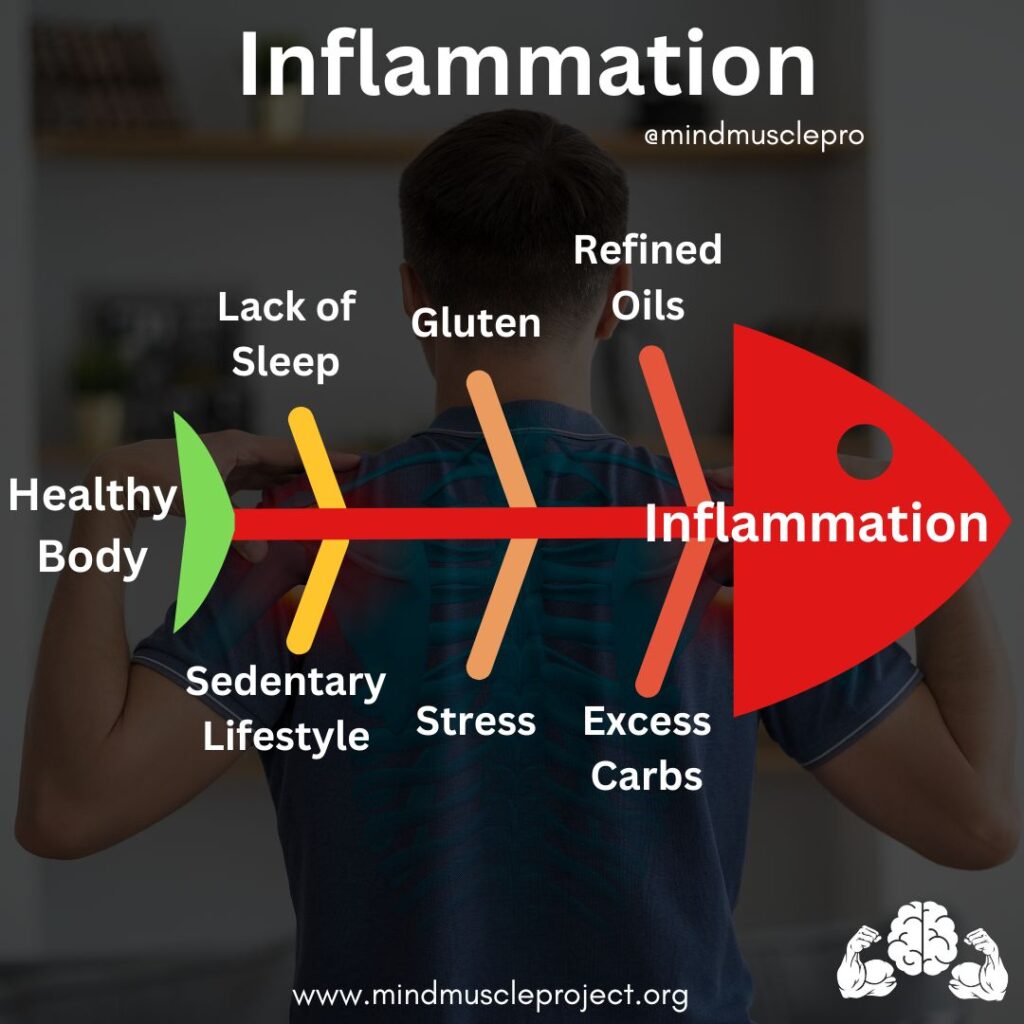Inflammation is your body’s natural defense mechanism, responding to infection, injury, or other threats. It’s how your body tries to heal itself. However, not all inflammation is helpful, and understanding its types and effects is crucial for maintaining health.
What Is Inflammation? #
Acute vs. Chronic Inflammation #
- Acute Inflammation:
Imagine stubbing your toe. The redness, swelling, and pain you feel are signs of acute inflammation—a short-term, protective response aimed at healing. - Chronic Inflammation:
Now, imagine repeatedly injuring the same spot every day. Over time, inflammation persists, damages tissues, and leads to long-term harm, such as losing function in that area. This is chronic inflammation, a condition that fuels many diseases.
While acute inflammation is beneficial and short-lived, chronic inflammation is detrimental and can silently drive almost every major illness.
How Inflammation Affects Your Body #
Chronic inflammation doesn’t limit itself to one part of the body. It spreads and manifests in different systems:
1. Brain and Nervous System 🧠 #
- A compromised blood-brain barrier due to inflammation can result in:
- Brain fog
- Depression and anxiety
- Poor concentration and memory
- Neurodegenerative conditions in advanced stages
2. Digestive System #
- Gut inflammation often leads to:
- Digestive issues: bloating, stomach pain, diarrhea, constipation
- Leaky gut syndrome, which can trigger autoimmune diseases
3. Blood Sugar Regulation #
- Inflammation disrupts the pancreas, liver, and insulin receptors, causing:
- Unstable blood sugar levels
- Hyperinsulinemia, a precursor to metabolic syndrome
4. Detoxification System #
- Inflammation in the liver, kidneys, or lymphatic system hampers detoxification, resulting in:
- Swelling in the hands, legs, or face
- Accumulation of waste products, further fueling inflammation
5. Endocrine System #
- Hormonal imbalances can occur due to inflammation disrupting communication between the brain and glands, leading to:
- Thyroid disorders
- Low libido
- Irregular menstrual cycles
6. Muscles and Joints #
- Inflammatory responses in these areas result in:
- Joint pain and stiffness
- Muscle soreness and general achiness
7. Immune System #
- Prolonged inflammation can confuse the immune system, leading it to attack the body’s tissues—this is the basis of autoimmune diseases.
Detecting Inflammation: Key Blood Markers #
You can assess inflammation levels through specific blood tests:
1. C-Reactive Protein (CRP) #
- Produced in the liver, CRP levels rise with inflammation. The hs-CRP test is especially useful for assessing cardiovascular disease risk.
2. Erythrocyte Sedimentation Rate (ESR) #
- Measures how fast red blood cells settle in a test tube. Higher ESR indicates higher inflammation levels.
3. Ferritin #
- An iron storage protein. Elevated levels during inflammation suggest the body is withholding iron from pathogens to prevent their growth.
4. Homocysteine #
- An amino acid associated with vascular inflammation. High levels increase clotting risks and indicate chronic inflammation.
5. Fasting/Postprandial Insulin #
- Though not a direct inflammatory marker, elevated insulin levels often coincide with inflammation, particularly in metabolic syndrome.
#
Inflammation can subtly affect one part of the body while leaving others untouched. This variability makes it essential to track multiple markers and address its root causes. Understanding inflammation and managing it through lifestyle, diet, and medical intervention is key to long-term health. Don’t let this silent force wreak havoc—stay proactive and informed!





